Years ago, sometime in the 90’s, I was watching Dateline and they were reporting on a study that seemed to indicate that test-takers did better on some parts of a test if they were listening to the music of Mozart. I was really interested in that.
 For several years, I’d been writing preschool Sunday School curriculum. And I thought that listening to Christian music and/or hymns might help me write. It was not so. Not at all. The music was distracting, and I couldn’t get anything done. So I opted for quiet. Now, I thought I’d try a little Mozart. Kevin was with me at the music store when I was looking for some Mozart cassette tapes. (Here is a link to Cassette Tapes, in case you are so very young that you don’t know what I’m talking about.) I explained what I’d heard in the Dateline report and that I thought I’d try listening to Mozart when I was writing. Kevin said he thought I’d just been brainwashed by Jane Pauley (the Dateline reporter).
For several years, I’d been writing preschool Sunday School curriculum. And I thought that listening to Christian music and/or hymns might help me write. It was not so. Not at all. The music was distracting, and I couldn’t get anything done. So I opted for quiet. Now, I thought I’d try a little Mozart. Kevin was with me at the music store when I was looking for some Mozart cassette tapes. (Here is a link to Cassette Tapes, in case you are so very young that you don’t know what I’m talking about.) I explained what I’d heard in the Dateline report and that I thought I’d try listening to Mozart when I was writing. Kevin said he thought I’d just been brainwashed by Jane Pauley (the Dateline reporter).
The idea caught on and, with all sorts of folks jumping on a bandwagon that didn’t really exist, the Mozart effect became famous (or, infamous) and all sorts of benefits were attributed to the phenomenon. There were books, there were recordings, and when all was said and done, there wasn’t really much research to support all the hoopla.
However, and this is really important, I put that first Mozart tape into the tape player, punched “Play,” and was able to write while I listened to the music.
So, whatever the research does or doesn’t say, it worked for me.
Last Monday morning, I had NPR on the car radio and something familiar came on. I couldn’t identify exactly the piece but I thought, “That must be Mozart.” For years, I listened to a variety of the composer’s music regularly, almost every week. Because …
When I began teaching at the community college, on the first test day, I explained about Mozart and the research that said that, maybe, possibly, there was a positive relationship between his music and spatial reasoning, and how I thought anything that might help people think a little better and more clearly would be an asset. So, I was going to play Mozart while they took their test. Another benefit, and not Mozart-related, was that in total quiet, any little sound, chair-squeaking, throat-clearing, pencil-dropping, makes a big, disruptive noise. Playing quiet music helps cover those interfering noises. Most students liked it.
One semester, I had a student who complained about the music. I hated to stop using it, because so many others said that it did help. I went searching for other Mozart tapes (and by that time, there were scads of them). I tried Mozart at Midnight. Not good. Mozart in the Morning. Nope. Mozart for Your Mind. Not that one, either. I bought Mozart for Mothers-to-Be. After playing that music while students were taking a test, that student brought her completed test to my desk and handed it in. “How was the new music?” I asked, hopefully. “What music?” she said. BINGO! It was so peaceful and soothing, she didn’t even notice it, much less be distracted by it.
- Loser
- Loser
- Loser
- At last!! A WINNER!!
- There are a lot
- of Mozart CDs
- out there!
- Even MORE Mozart for your mind
Another semester, in another class, a student related this story: She was taking Algebra in addition to my class. She had a couple of teen-aged kids and a busy household. One evening, she had some algebra homework that she had to get finished, but the house was full and busy and noisy. So she went off to a bedroom and turned on the radio to block out the family sounds. She said there was some classical music on. She worked on her algebra. She said she was able to relax and work and she finished quickly and easily. As she was finishing up, the music ended and the radio disc jockey came on, “And that was,” he said, “Mozart.”
“I wasn’t surprised,” she said. “I guess it does work.” Yes, I think it does.
Your singing will be like that on the night of a holy festival, and your heart will rejoice like one who walks to the music of a flute, going up to the mountain of the Lord, to the Rock of Israel.
Isaiah 30:29 (Holman Christian Standard Bible)
(Listening to good music may not really help with test-taking, but it certainly can make a heart rejoice. So, it might be a win-win.)
Last Monday, when I got home, I raced into the house and pulled up the local NPR website. 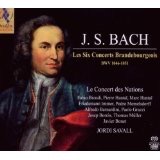 They always have a link to “What’s Playing Now.” I clicked the link and read to identify the music I had just been hearing. It was Bach. One of his Brandenburg Concertos. Hmmm. I wonder if anyone’s been doing Bach research.
They always have a link to “What’s Playing Now.” I clicked the link and read to identify the music I had just been hearing. It was Bach. One of his Brandenburg Concertos. Hmmm. I wonder if anyone’s been doing Bach research.

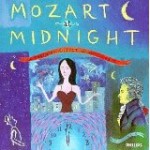
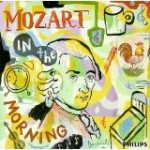
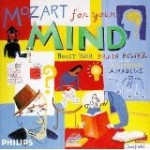
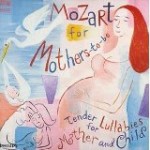
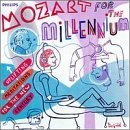
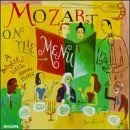
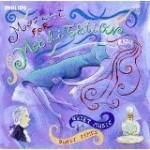
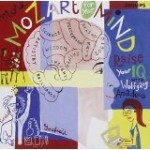
Nothing can calm a restless soul like Mozart.
Bach has always been my favorite–especially the Brandenburg Concertos!